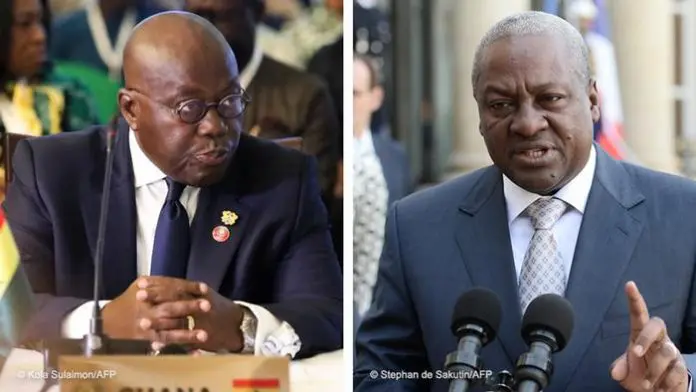Cedi’s performance: Both NPP, NDC governments failed – Amoah
“The two leading parties in our country, in my opinion have not done much. Simply because any attempt to adopt short term approach to solving currency issues in any country does not work, it is not sustainable.

A member of the Finance Committee of Parliament, Dr Stephen Amoah has accused governments of the New Patriotic Party (NPP) and the National Democratic Congress (NDC) of failing to adopt the right policies and measures to deal with the problems of the local currency, the cedi.
The Nhyiaeso lawmaker indicated that the two parties that have had the privilege to govern the country all adopted short-term unstainable measures in their attempt to solve the problem.
- Advertisement -
“Let us be very honest, currency issue is one of the areas that both NPP and the NDC governments, in my opinion, have not done much to save the situation.
- Advertisement -
“The two leading parties in our country, in my opinion have not done much. Simply because any attempt to adopt short term approach to solving currency issues in any country does not work, it is not sustainable.
“That has been the ritual all the time, we are looking at seasons, we are looking at performance elsewhere, we are looking at having syndicated loans and we are looking all sort of factors but trust me, these are all not sustainable approaches.
“We need to accept and appreciate this and begin to work sustainably towards these issues. Other than that Ghana will definitely, one day, go down and will never come back,” he told Accra-based Joy FM on Tuesday March 8.
Recently, the Director of the Institute of Statistical, Social and Economic Research (ISSER) of the University of Ghana, Professor Peter Quartey, gave a vivid assessment of what is causing the free-fall of the cedi against the major trading currencies especially the dollar.
The cedi is currently trading at 1 USD to ¢7, 4 pesewas.
Prof Quartey mentioned panic among investors due to the downgrade by the credit rating agencies, repatriation by foreign companies, the ongoing tension between Russia and Ukraine and others, as some of the causes of the fall of the local currency.
Regarding panic among investors, he explained that when recently, when the credit rating agencies downgraded the economy, investors became afraid and decided to engage in speculation, leading to their hesitance in buying bonds.
- Advertisement -
In the area of repatriation, he added that it has been the tradition that in the first quarter of every year the country experiences a surge in demand for foreign currency because foreign companies will want to repatriate their profits.
When that happens, he said it puts a lot of pressure on the cedi.
Speaking in an interview with TV3’s Alfred Ocansey on Tuesday March 1, he said “Because of our fiscal deficit, revenue challenges and the high debt levels we were downgraded by rating agencies. So that sent some panic to the system and therefore, people started to speculate. When that happens, investors who will bring in the needed foreign currencies to invest, to buy bonds and other things, will hesitate.
“You will also find that even those that are holding on to our bonds, some might exit. All of that put pressure on the exchange rate. We also have some people out of the uncertainty, who are holding onto the foreign currencies, they might have dollars or Euros but because of the uncertainty they would hold on rather than trading.
“Exchange rate is determined by demand and supply, so if people are not supplying the foreign currencies but rather there is an increase in our a surge in demand, a surge could also happen when those who hold the local currency don’t have confidence in the cedi and rather exchange the cedi for dollars for keeps.”
“We have all these speculative activities happening and that affect the rate of depreciation. We also know that it has been the tradition that in the first quarter of every year we have this surge in demand for foreign currency because foreign companies will want to repatriate their profits.
“You will also find the Chinese New Year for instance, where a lot of Chinese investors locals will want to go home and celebrate, they demand a lot of foreign currency. So there is a lot of pressure in the first quarter of the year.
“The government revenue doesn’t flow as mush as expected, the donor inflow doesn’t come in as expected within the first quarter. Then also, what is happening in Ukraine and Russia is also affecting oil prices, oil prices are going up, so we tend to demand more foreign currency in order to import oil and import other essential commodities,” he added.
Source:|3news.com|Ghana
- Advertisement -



